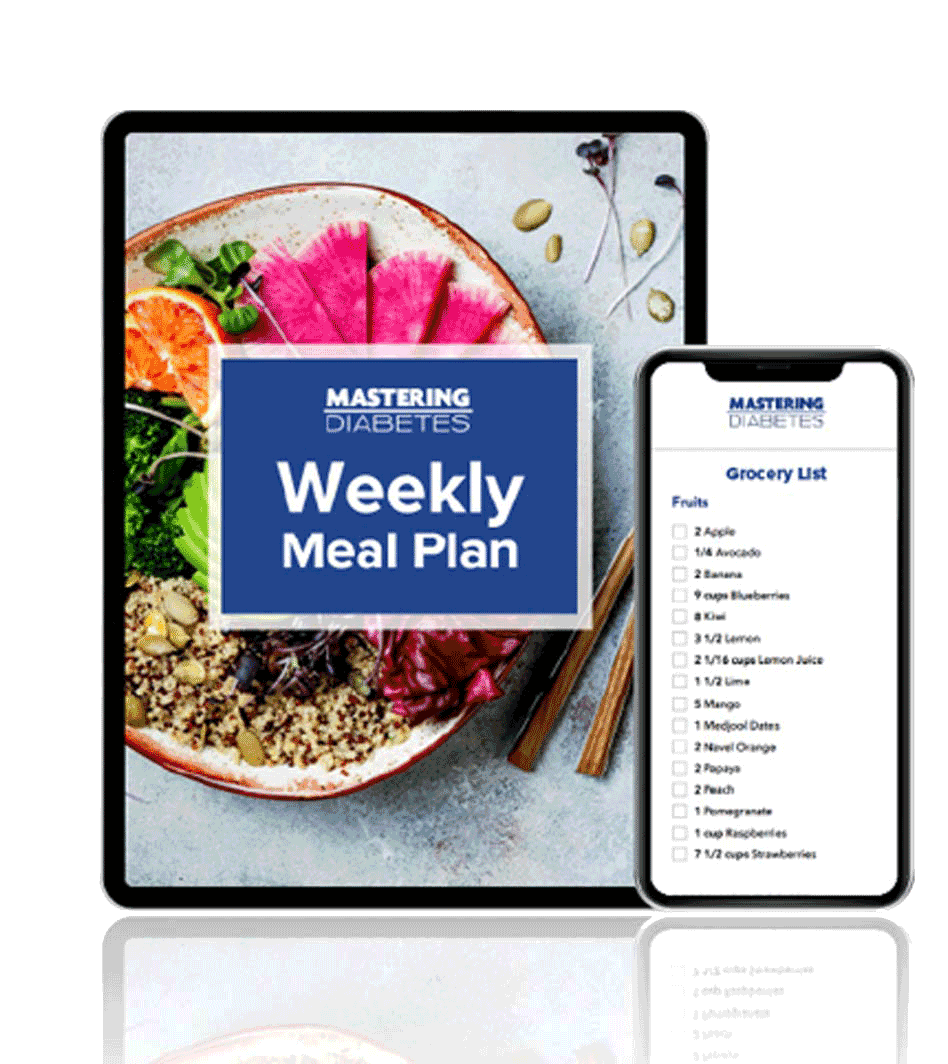
What is Adult-Onset Type 1 Diabetes?
Adult-onset type 1 diabetes (also known as LADA) is an autoimmune disease very similar to type 1 diabetes mellitus in which your immune system mistakenly attacks the insulin-producing beta-cells in your pancreas, reducing their ability to manufacture and secrete insulin.
When your body can no longer produce sufficient insulin, people living with type 1 diabetes require exogenous insulin (insulin from outside sources) to control their blood glucose levels.
If not treated properly, adult-onset type 1 diabetes can lead to hyperglycemia (high blood glucose levels), diabetic ketoacidosis (DKA), and increased chronic disease risk.
Though commonly thought to affect children and young adults, scientific research has shown that up to 40% of type 1 diabetes diagnoses may occur in adults greater than 30 years of age.
In this article, we’ll touch on the symptoms and risk factors of adult-onset type 1 diabetes, and the most effective strategies for treatment.
We’ll also touch on the difference between adult-onset type 1 diabetes and other forms of diabetes like type 1 diabetes and type 2 diabetes, and how you can be sure to differentiate between them.
Adult Type 1 Diabetes Symptoms

The majority cases of type 1 diabetes are diagnosed before age 30. However, researchers are increasingly discovering exceptions to this rule, like Regina, who was diagnosed at age 44.
No matter when type 1 diabetes is diagnosed, the initial symptoms often onset quickly, and can include:
No matter when it onsets, type1 diabetes is a serious condition, and can dramatically increase your risk for death and other chronic diseases in the long-term, if left uncontrolled.
Research shows that more than 50% of people living with type 1 diabetes die from heart disease after 20 years of diagnosis, and 65% die from kidney failure after 30 years of diagnosis.
However, there are well-tested, evidence-based methods to manage type 1 diabetes, which we’ll cover below.
Adult Onset Type 1 Diabetes Risk Factors

Currently, the exact risk factors of type 1 diabetes, adult-onset or not, are unclear.
It’s known that type 1 diabetes autoimmunity begins with molecular mimicry, a tactic used by various bacteria and viruses to evade detection by “disguising” themselves as mammalian proteins.
This causes a form of biological “friendly fire”, in which your body mistakenly characterizes proteins on the surface of insulin-producing beta cells as foreign pathogens, and attacks them.
Recent research has connected the risk of developing type 1 diabetes to introduction of cow’s milk protein at a young age, contracting certain enteroviruses, and possibly mycobacterium avium paratuberculosis (MAP), but these exact connections require further investigation.
Genetics and Type 1 Diabetes
Genetics are likely a risk factor of type 1 diabetes, but the research is currently unclear on exactly how a family history corresponds to type 1 diabetes risk.
According to the NIH, “A predisposition to develop type 1 diabetes is passed through generations in families, but the inheritance pattern is unknown.”
What’s the Difference Between Type 1 and LADA?

The main difference between type 1 diabetes and type 1.5 diabetes (also known as Latent Autoimmune Diabetes in Adults or LADA) is the speed and strength of the autoimmune condition.
Type 1 diabetes is a fast-progressing, strong autoimmune condition which results in a near complete loss of insulin production between 12-18 months on average. Patients with type 1 diabetes often test positive for multiple antibodies to beta cell proteins.
Type 1.5 diabetes is a slow-progressing, weaker autoimmune condition which results in a decline in insulin production that may take years to develop. Patients with type 1.5 diabetes often test positive for a single antibody to beta cell proteins.
As we mentioned above, identifying these conditions through the onset of their symptoms can be difficult. However, both adult-onset type 1 diabetes and LADA/type 1.5 diabetes can be effectively identified with two decisive tests: the C-peptide test, and a diabetes antibody panel.
Getting Clarity: Tests and Diagnosis of Type 1 Diabetes in Adults

You’ll be able to identify adult onset type 1 diabetes using two blood tests.
Identifying the Presence of Diabetes
If you suspect that you may be developing any type of diabetes, ask your doctor for an A1c test or an oral glucose tolerance test (OGTT).
Both of these blood tests are extremely helpful in identifying your ability to metabolize glucose, and can help indicate whether you may be living with insulin resistance or any type of diabetes.
Distinguishing Which Type of Diabetes You Have
To fully determine which type of diabetes you have, we strongly recommend taking a c-peptide test, which determines the ability of your beta cells to produce insulin.
If your c-peptide value is medium or high, this indicates that your ability to manufacture and secrete insulin is enough to control your blood glucose well.
If your c-peptide value is low, this indicates that your beta cells are compromised in their ability to secrete insulin, resulting in either (a) insulin-dependent type 2 diabetes, (b) type 1 diabetes, or (c) type 1 diabetes.
The final test that we recommend is a diabetes antibody panel, which identifies whether you test positive for any of several autoantibodies. If you test positive for one or more antibodies, this suggests that you have autoimmune type 1 or type 1.5 diabetes.
The Road Ahead for Adults with Type 1 Diabetes: Treatment Options

Currently, type 1 diabetes has no known cure. However, it can be effectively managed and treated to avoid major complications like heart disease, fatty liver disease, and chronic kidney disease.
This treatment plan has two major areas — insulin therapy and an evidence-based lifestyle.
Insulin Therapy
The first step to treating type 1 diabetes is to speak with your doctor about insulin therapy. Your doctor can help you determine what type of exogenous insulin to use and how much to inject to help you control your glucose with precision.
Injections of exogenous insulin via a needle, syringe, or insulin pump replace the insulin that your beta cells would produce if you were non-diabetic.
Your doctor can help you determine a good strategy for insulin therapy, and help you determine which basal insulin (long-acting) and bolus insulin (rapid-acting) is right for you.
A Low-Fat, Plant-Based, Whole-Food Diet for Type 1 Diabetes
The next step to effectively treating type 1 diabetes at any age is making evidence-based dietary choices to reduce your biological insulin requirement.
Many people living with insulin-dependent diabetes experience an increased need for insulin over time, due to increasing insulin resistance in their liver and muscle. Maximizing your insulin sensitivity can actually reduce your basal and bolus insulin needs between 10-60%.
The best way to ensure your long term health with type 1 diabetes is a low-fat, plant-based, whole-food diet that’s high in whole carbohydrates and low in total fat.
This form of nutrition results in dramatically increased insulin sensitivity, which means a few key things:
The impact of diet is hugely important and hugely powerful.
The research shows that there is nothing better for your body than a low-fat, plant-based, whole-food diet for people living with type 1 diabetes, and making this change is the best step towards mastering diabetes.
For more information on the facts and myths surrounding diabetes diets, you can explore our comprehensive article on the best diet for type 1 diabetes.
Proven Coaching for All Types of Diabetes
A diabetes diagnosis at any age can be a heavy weight on your shoulders, but the most important thing to know is that all forms of diabetes can be effectively managed with evidence-based lifestyle changes.
Still, we know that these can be easier said than done, which is why we offer an comprehensive coaching program and a supportive community to help you master diabetes and stay healthy for the decades to come.
Still, we know that these can be easier said than done, which is why we offer a comprehensive coaching program and a supportive community to help you master diabetes and stay healthy for the decades to come.
Working together, we’ve already seen hundreds of members of our community take control of their type 1 diabetes, like:
We founded Mastering Diabetes to help share our own experience living with diabetes, and help guide others with evidence-based research to master diabetes themselves. We hope we can help you too!
Stop Guessing What to Eat
Get Delicious Recipes Sent to Your Inbox Every Week!

Discover the custom-designed Weekly Meal Plan that gives you clarity on what to eat and how to shop to simplify your journey to lower blood sugar, weight loss, and your best A1c




